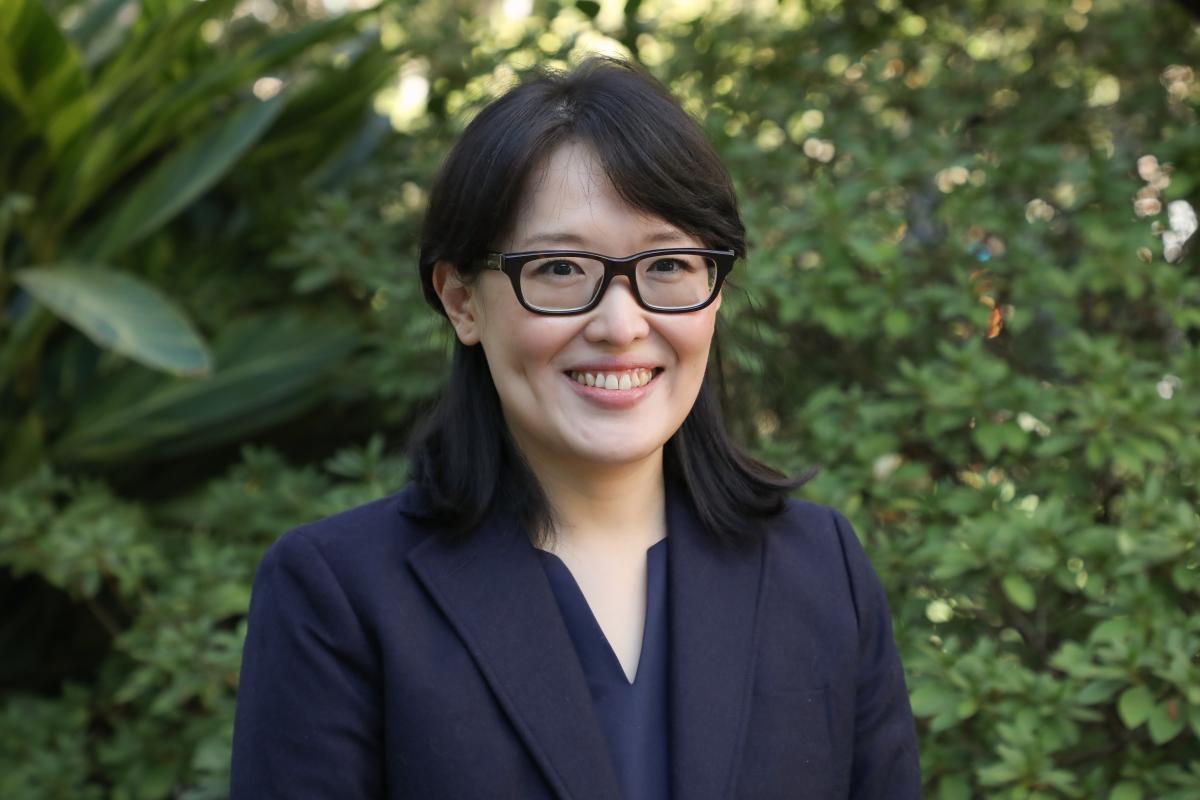Faculty Spotlight: Weiwei Luo

Weiwei Luo is an assistant professor in the Department of History, part of Florida State University’s College of Arts and Sciences. Luo discovered her passion for studying legal history and comparative institutions while pursuing her juris doctor degree at the Washington University School of Law in St. Louis, Missouri, from which she graduated in 2010. She has worked for law firms and the Equal Employment Opportunity Commission. Upon earning her doctorate in 2019 from Columbia University, Luo began a career in academia as an assistant professor of Chinese and Asian history at Grinnell College in Grinnell, Iowa. She is currently writing her first book, which focuses on public goods-related law in 18th- and 19th-century China.
Tell us a little about your background and what brought you to FSU?
Growing up in China, I was a curious child with a lot of different passions, but I was often uncertain about which path to pursue. While the allure of a musical career beckoned, the unpredictability of such a profession nudged me toward the more stable field of law. However, during my first year at law school, I was captivated by a course on American legal history. The subject matter, readings, and methodologies fascinated me so much that I began to explore more history and humanities courses. This journey led me to delve into Chinese legal history, a field that combined my interest in ancient civilizations with the study of law.
My first academic job was at Grinnell College, but I eventually relocated to FSU to be with my family. My husband, James Palmer, is an associate professor of history at FSU, and we have two young children.
Can you break down your areas of research for us?
I specialize in the legal and economic histories of China, researching Chinese history and Asian history through a global and comparative perspective. My research encompasses themes such as comparative law, political economy, the evolution of norms, and the history of contracts and monetary transactions.
What inspired you to choose your field of study? Why are you passionate about your research?
My main inspiration comes from the mystery of history itself. For millennia, civilizations have coexisted, influencing and interacting in ways we are only beginning to understand. How were identities, beliefs, and institutions perceived and conveyed across varied linguistic and geographical landscapes? In today's globalized society, how do we articulate and interpret our differences and commonalities? As 21st-century citizens, how do we envision the world and our roles within it?
What do you want the public to know about your research? Why is your topic important?
My current book project delves deeply into the creation of "rights" in local communities during late imperial China — primarily what we would recognize today as property rights. It highlights the roles played by factors like the natural environment, territory and sense of justice. Surprisingly, these grassroots conceptualizations of rights became the bedrock for significant political shifts as China transitioned into modernity. Concepts of nationhood, legitimacy, accountability, and political representation were intrinsically linked to these bottom-up formulations of property rights. Many Western people assume that property rights have been absent in Chinese history and that there is no link between property and politics. My research aims to shift these prevailing views.
What is the most surprising thing you have discovered in your research?
It feels like the more I learn, the less I know. I have been surprised the most by how much there is to discover and learn, not just in my field, but also in general. This really should not be surprising, but to know this deep down — instead of theoretically or philosophically — is still very startling!
Tell me a bit about being invited to a workshop at the Max Planck Institute for Legal History and Legal Theory in Germany over the summer.
The summer workshop I attended was the inaugural meeting of a multi-year working group focusing on the Chinese legal tradition. This initiative falls under the broader umbrella of research projects at the Max Planck Institute. Beyond the opportunity to connect with esteemed colleagues in legal studies during the workshop, I was particularly impressed by what the institute offers: A global perspective on legal history, the depth of the German scholarly tradition, and adeptness in melding empirical and theoretical insights.
What is your favorite part of your job?
I love learning new things all the time — in both teaching and research!
Do you have any exciting upcoming projects or goals you are working towards?
My book manuscript is based on my doctoral dissertation and focuses on the growth, governance, and transformation of common pool resources such as local infrastructure in late imperial China. This project brings empirical research of premodern Chinese legal institutions into theoretical dialogue with Western legal traditions. In doing so, it also reframes the narrative of Chinese early modernity.
I am also in the process of laying the groundwork for a forthcoming project. I want to write a cultural history of the "market" within a global framework. While many studies zoom in on market economies and provide quantitative analyses of economic growth, my interest lies in exploring the market as a concept, a space, a stage, and a means of control and negotiation on an international level.
If your students only learned one thing from you (of course, hopefully they learn much more than that), what would you hope it to be?
Always question your own assumptions; curiosity and humility make life an adventure.
